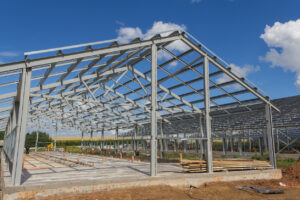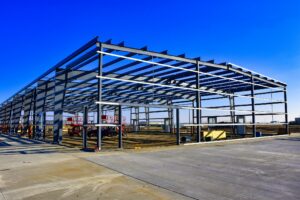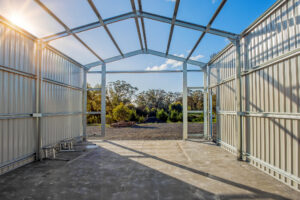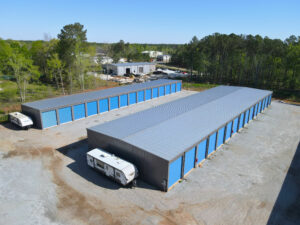In today’s highly competitive business landscape, starting a warehouse business can be a lucrative venture. However, it requires careful planning and consideration of various factors such as cost, design, warehouse licenses and more to ensure success.
The warehousing and storage industry in the United States has experienced significant growth since 2010, with the number of businesses in this sector increasing steadily each year.
In 2021, there were 20,002 warehousing and storage enterprises, a substantial increase compared to the 15,152 businesses operating in 2010.
This article will guide you through key considerations when starting a warehouse business, including understanding the warehouse business, developing a business plan, legal and regulatory considerations, location and infrastructure, and staffing and management.
Table of Contents:
- Understanding the Warehouse Business
- Developing a Business Plan
- Legal and Regulatory Considerations
- Location and Infrastructure
- Staffing and Management
- Next Steps
- Frequently Asked Questions
Understanding the Warehouse Business
Warehouses are pivotal in the supply chain, serving as the hub for storing and distributing goods. They act as the intermediary between manufacturers and customers, ensuring the smooth flow of products throughout the distribution network.
There are different types of warehouse businesses, each with its unique characteristics. Some common types include fulfillment centers, which focus on e-commerce order fulfillment, and distribution centers, which handle the storage and distribution of goods for various retail outlets.
Another important type of warehouse business is cold storage facilities, which are equipped to store perishable goods such as food and pharmaceuticals at controlled temperatures to maintain their quality and safety.
These facilities are crucial for industries that deal with temperature-sensitive products and require specialized storage conditions.
Additionally, some warehouses specialize in providing third-party logistics (3PL) services, offering a range of logistics solutions such as inventory management, order processing, and transportation. These 3PL warehouses play a key role in helping businesses streamline their operations and improve efficiency in managing their supply chains.
Developing a Business Plan
Before embarking on your warehouse business venture, it is crucial to develop a comprehensive business plan. This plan will act as your roadmap, guiding you through the various aspects of your business.
When creating your business plan, it’s important to consider not only your short-term goals but also your long-term vision for the company.
Think about where you see your warehouse business in five or ten years and outline the steps you need to take to reach those milestones.
Defining Your Business Objectives
Begin by defining your business objectives. Are you looking to specialize in a specific industry? Will you focus on a particular region? Clarifying your goals will help you make informed decisions throughout the process.
Furthermore, when defining your business objectives, consider incorporating sustainability practices into your warehouse operations.
Implementing eco-friendly initiatives can not only benefit the environment but also appeal to a growing number of environmentally conscious consumers.
Identifying Your Target Market
Identifying your target market is essential to determine the demand for your services. Conduct thorough market research to understand the needs and preferences of potential customers. This information will help you tailor your services to meet their requirements.
In addition to identifying your target market, it’s also beneficial to analyze your competitors. Understanding what other warehouse businesses in your area are offering can help you differentiate your services and find a unique selling proposition that sets you apart in the market.
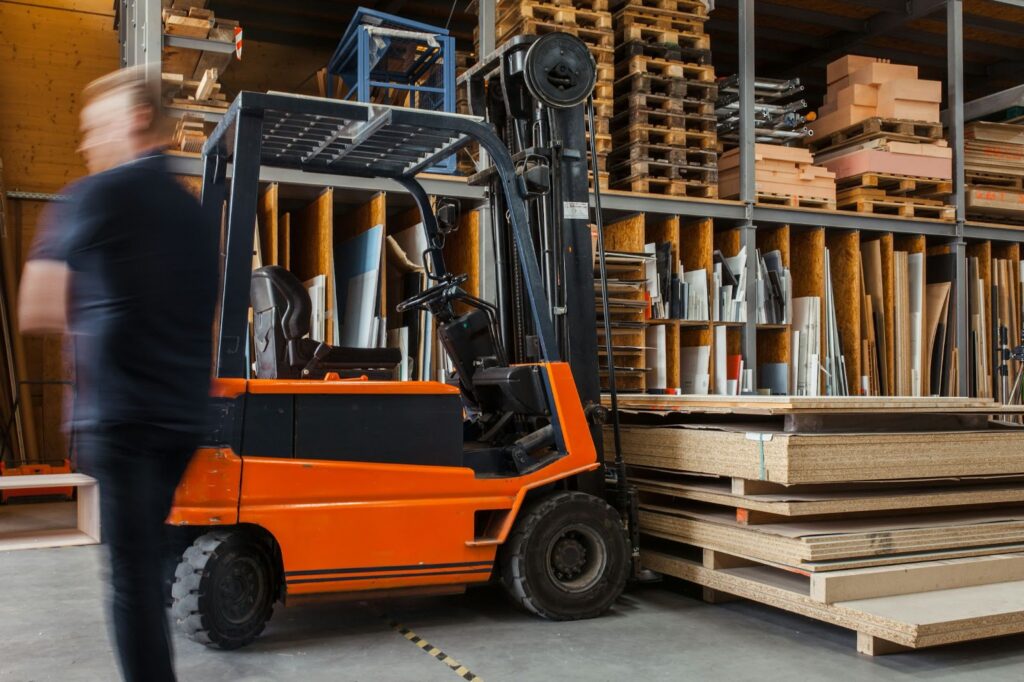
Legal and Regulatory Considerations
Complying with legal and regulatory requirements is crucial for any business operation. When starting a warehouse business, it is imperative to familiarize yourself with the relevant licenses, permits, laws and regulations.
Ensuring compliance with legal and regulatory considerations is not only a best practice but also a legal requirement to avoid potential fines, penalties, or even business closures.
It is essential to stay updated on any changes in legislation that may impact your warehouse operations.
Business Registration and Licensing
Before commencing operations, you will need to register your warehouse business and obtain the necessary licenses and permits. Consult with local authorities to ensure compliance with all regulations.
Registering your warehouse business involves choosing a business structure, such as a sole proprietorship, partnership, limited liability company (LLC), or corporation. Each structure has different legal and tax implications, so it is crucial to select the one that best suits your business needs.
Did You Know?
Within the past five years, there has been a notable shift in the U.S. warehouse leasing landscape, with e-commerce now accounting for approximately 20% of new leases, representing a 5% increase from five years ago.
Understanding Warehouse Safety Regulations
Warehouses can be hazardous environments if proper safety precautions are not implemented.
Familiarize yourself with warehouse safety regulations, including fire safety, proper handling of hazardous materials, and employee safety protocols.
Implementing a comprehensive safety training program for warehouse staff is essential to prevent accidents and injuries.
Regular safety inspections and audits should also be conducted to ensure ongoing compliance with safety regulations and to identify any potential hazards that need to be addressed.
Location and Infrastructure
Choosing the right location for your warehouse is paramount to its success. Factors to consider include proximity to suppliers and customers, transportation infrastructure, and accessibility for necessary equipment and vehicles.
When selecting a warehouse location, it’s essential to delve deeper into the geographical aspects. Look into the climate of the region, as extreme weather conditions can impact your operations.
Additionally, consider the proximity to major highways, ports, or airports for efficient transportation and distribution of goods. Accessibility to public transportation for employees can also play a vital role in the overall efficiency of your warehouse.
SteelCo delivers PEMB materials to various locations nationwide and offers superior steel erection and warehouse construction services, primarily serving the Southeast United States. Our experienced professionals will assist you in making informed decisions, ensuring a successful start to your warehouse business.
In certain locations, zoning laws regulate the approved types of buildings and activities. A warehouse business must adhere to zoning regulations to obtain the necessary license and legally operate.
Choosing the Right Location for Your Warehouse
Consider factors such as geographic location and local business climate when selecting a warehouse location. Assess the availability of skilled labor and determine whether the area aligns with your target market.
Furthermore, evaluating the local business climate can provide insights into potential partnerships or collaborations within the area.
Research the economic stability of the region and any incentives or benefits offered to businesses. Understanding the competitive landscape can also help in positioning your warehouse strategically within the market.
Warehouse Design and Layout Considerations
Optimizing warehouse design and layout is crucial for efficient operations. Evaluate your storage needs, including inventory volume and product characteristics, to determine the most suitable layout.
Consider factors such as racking systems, flow paths, and picking areas. When designing the layout of your warehouse, it’s important to factor in future scalability and flexibility. Incorporating automation technologies and robotics can enhance operational efficiency and streamline processes.
Additionally, implementing sustainable practices in warehouse design, such as energy-efficient lighting and eco-friendly materials, can contribute to cost savings and environmental responsibility.
Pro tip:
A well-designed and organized warehouse layout offers adaptability to manage a range of product lines, adapt to shifting market demands, and enable business growth without requiring a larger facility. Each square foot is critical because by controlling rental expenses, you can create opportunities for operational expansion within your existing space without additional square footage.
Staffing and Management
Figuring out how to building a competent and dedicated team is essential to start and run a successful warehouse business. Effective warehouse management systems ensure seamless operations and customer satisfaction.
When it comes to staffing your warehouse, it’s not just about finding warm bodies to fill positions. It’s about creating a cohesive team that works together like a well-oiled machine.
Look for individuals who not only have the necessary technical skills but also possess strong communication and problem-solving abilities. A harmonious team can make all the difference in the efficiency and morale of your warehouse.
Did You Know?
The US warehousing and storage industry employs approximately 787,000 people. Job growth is expected to be 6.32% in the next 10 years.
Hiring the Right Team
Recruiting skilled and reliable personnel is crucial for a successful warehouse business. Hire individuals with experience in warehouse operations and management.
Develop a comprehensive training program to ensure your team is equipped with the required skills and knowledge.
Furthermore, consider implementing a mentorship program where seasoned employees can guide and support new hires.
This not only helps in knowledge transfer but also fosters a sense of camaraderie and teamwork among employees of different experience levels.
Implementing Effective Warehouse Management Systems
Implementing a robust warehouse management system (WMS) will enhance efficiency and streamline your business processes. A WMS helps optimize inventory management, order fulfillment, and tracking, thereby improving overall productivity and customer satisfaction.
Additionally, regularly review and update your WMS to incorporate the latest technological advancements and industry best practices.
Staying ahead of the curve ensures that your warehouse operations remain competitive and efficient in a rapidly evolving market.
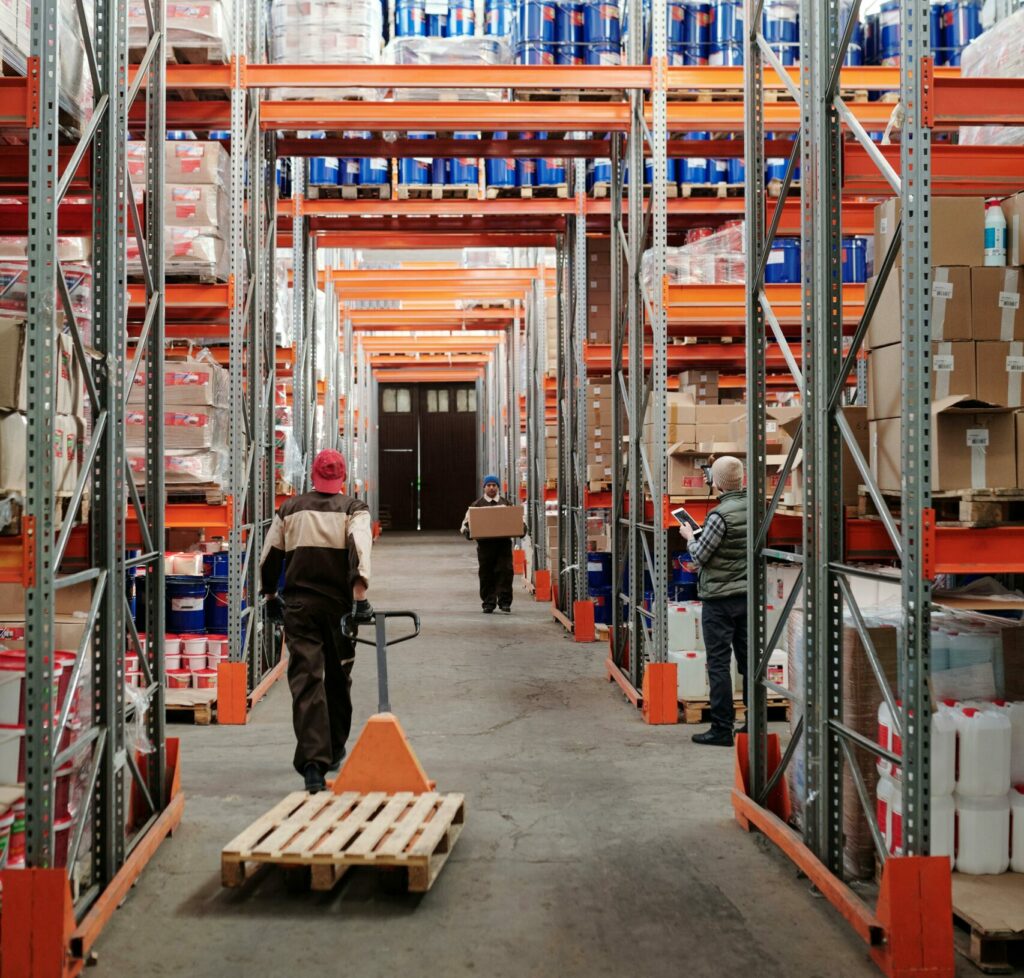
Next Steps
Starting a warehouse business requires careful consideration of various factors. Understand the different types of warehouse businesses and develop a comprehensive business plan.
Familiarize yourself with legal and regulatory requirements that govern warehouse permits/licenses, and select the right location with suitable infrastructure. Build a competent team and implement effective warehouse management systems. By taking these key considerations into account, you can lay a strong foundation for your warehouse business and pave the way for long-term success.
With over 20 years of experience in dropshipping quality steel building materials and commercial general contracting services in GA, SteelCo is certified by the MBMA, AISI, and AISC, organizations that ensure the quality and integrity of PEMB parts and installation. We assist/partner businesses all the way from warehouse concept and design to permits/licenses, construction, and “certificate of occupancy”. Learn more about our services.
——————————-
Frequently Asked Questions
What are the different types of warehouse businesses?
Here are the common types of warehouses:
- Fulfillment centers: Focus on e-commerce order fulfillment.
- Distribution centers: Handle the storage and distribution of goods for various retail outlets.
- Cold storage facilities: Equipped to store perishable goods at controlled temperatures.
- Third-party logistics (3PL) warehouses: Offer a range of logistics solutions, including inventory management, order processing, and transportation.
What are the key factors to consider when starting a warehouse business?
- Defining your business objectives
- Identifying your target market
- Analyzing your competitors
- Projecting your financial performance
- Obtaining a warehouse license
What legal and regulatory requirements must I be aware of?
Have a good knowledge of these regulatory requeirments:
- Business Registration: Register your business under a suitable legal structure (LLC, Corporation, etc.).
- Permits and Licensing: Obtain the necessary warehouse licenses and permits for operations within your state and locality.
- Safety Regulations: Comply with OSHA workplace safety standards.
- Insurance: Secure appropriate insurance like property, liability, and workers’ compensation.
What are the key factors to consider when choosing a location to start a warehouse business?
Heew are a key factors to consider:
- Proximity to suppliers and customers
- Transportation infrastructure
- Availability of skilled labor
- Local incentives or benefits offered to businesses
- Zoning Regulations: Ensure you obtain the right warehouse permits and license for the area you choose.
- Factor in rent prices and local taxes.
What are some important design and layout considerations for a warehouse?
- Optimizing storage space
- Evaluating racking systems, flow paths, and picking areas
- Incorporating automation technologies and robotics
- Implementing sustainable practices
How can I build a competent and dedicated team for my warehouse business?
- Hiring skilled and reliable personnel
- Developing a comprehensive training program
- Implementing a mentorship program
———————–
Check out these related articles:
> Exploring Different Warehouse Types
> Distribution Center: How Much Does It Cost To Build?











